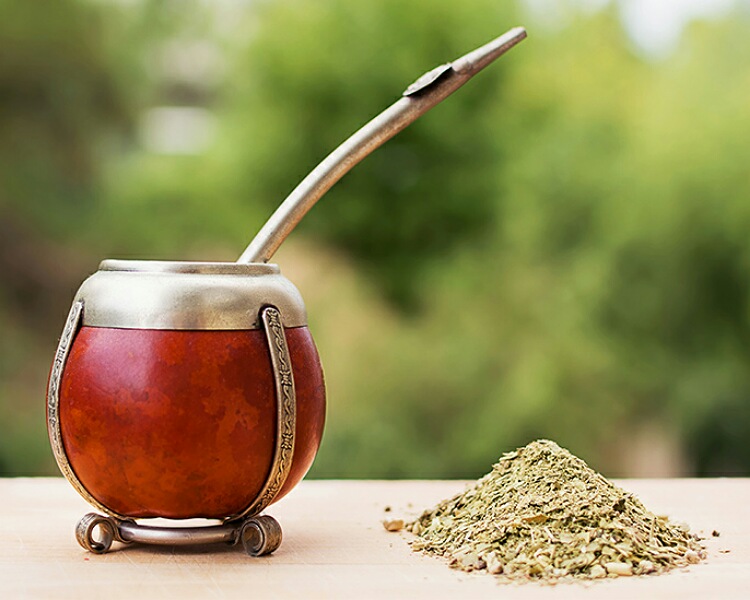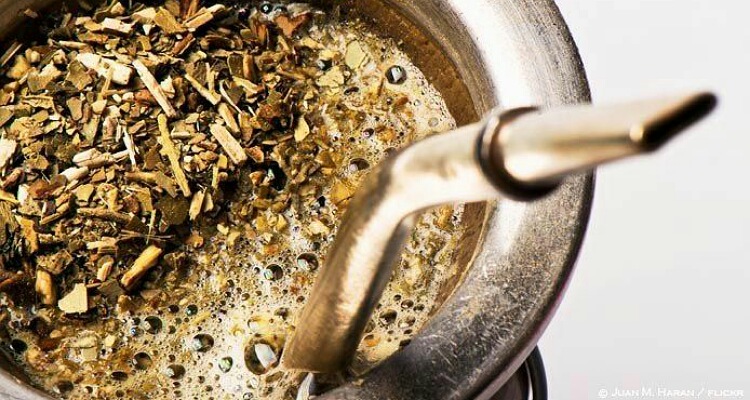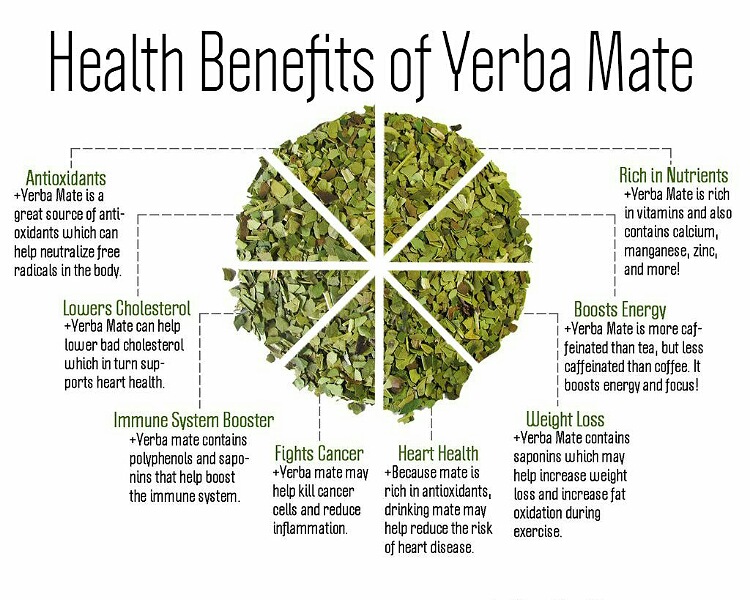Yerba mate is a plant native to South America. Its leaves go into the making of a beverage that has a stimulating action on the brain and boosts energy.
How does this infusion or herbal tea score nutrition-wise with tea or coffee? What is it’s benefits? Are there any side effects?
Yerba mate: description and uses of this plant
Yerba mate is a plant that is extensively found in Brazil, Argentina, Uruguay, and such South American countries. It belongs to the holly family and its scientific name is the Ilex paraguariensis plant .
Its leaves and twigs are brewed in hot water to produce a herbal infusion called mate. When it is brewed cold, it is a terrace. Like tea and coffee, it also stimulates the brain and also is an energy booster. It has a strong bitter taste like green tea.

Yerba mate is an ancient traditional drink of South America. Usually, it is drunk during social gatherings when it is served hot in a special hollow calabash gourd.
People drink it with a straw. The drink is passed around the table where everyone has a sip. This cycle continues and the server continues to refill it until the guests do not utter thank you.
There is also a special metallic pot with a metal straw that used to be used in the past to serve this drink. But nowadays, it is also drunk from chinaware, plastic, or other metal containers.
Some people also consume this drink cold with ice. It supposedly is a herbal remedy for fatigue, headaches of chronic type, and depression, and can aid weight loss. But research in this direction is very limited.
Nutrition of this infusion
One medium-sized cup containing yerba mate infusion provides the drinker with 15 calories. It has no fats or cholesterol and has 0.5 g of protein. Carbs are 3.0 grams and there is no sugar and nil fiber.

Moreover, it has ample quantities of antioxidants, zinc, vitamin C, and magnesium. The antioxidants include caffeoyl derivatives, xanthines, and saponins. But it is also high in caffeine.
Therefore, those who have issues with caffeine should be careful while consuming this drink too. Drinking in moderation should be the rule.
Health benefits
This herbal infusion shares the benefits for health with tea. Its antioxidant levels are more than that of green tea. It also has a lot of minerals and vitamins and 7 out of the 9 essential amino acids.
These antioxidants mop up the damaging free radicals from the body. These free radicals are the root cause of diseases such as chronic heart disease, stroke, high blood pressure, cancer, atherosclerosis, etc.
By drinking yerba mate, the levels of these free radicals drop and the associated risk of diseases also diminishes.
Mate can improve mood, and mental health, and boost energy. This is due to its caffeine content. It has 85 mg of caffeine in a cup. This is less than that in coffee but more than that in tea.
Therefore, it acts without producing the side effects that usually coffee drinkers suffer such as anxiety, insomnia, tremors, lack of concentration, crashes, etc. Alertness and reaction times improve and the person can focus on a task better.
Due to caffeine, muscle activity improves and fatigue comes down. Thus, overall there is an improvement in the physical performance of the person. In vitro studies have shown that the extract of the tea leaves possesses antimicrobial action against bacteria, fungi, and parasites.
But clinical data is lacking. The drink boosts metabolism and reduces appetite. The net result is loss of belly fat and weight loss.
Read more: What is red tea or Rooibos? Health benefits and safety
The minerals and vitamin content of the infusion have anti-inflammatory properties and can enhance immunity.
Some isolated studies have revealed the role of this extract in improving insulin signaling and reduction of advanced glycation end-products or AGEs. These supposedly worsen the diabetic stage.